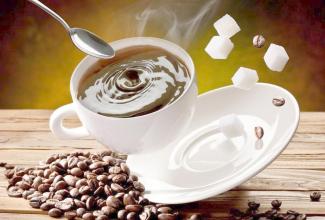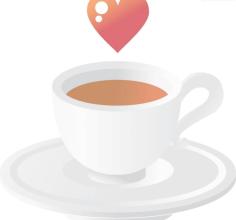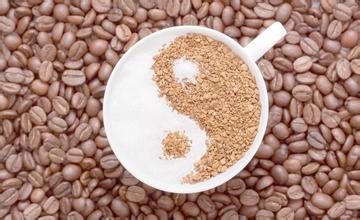Introduction to St. Thomas of Silver Mountain Manor in Jamaica Coffee Manor
Some small estates also grow Blue Mountain Coffee, such as Wallenford Manor, Silver Mountain Manor and Martinez's Atlanta Manor, which are also small-scale plantations, many of which are small landowners whose families have been working on this land for two centuries. The coffee industry in Jamaica is facing a series of problems, such as the influence of the whirlwind, the increase of labor costs and the difficulty of mechanized terraced fields. It is difficult to rationalize planting on many small estates and farms.
However, Blue Mountain Coffee is a coffee retailer that values credibility and keeps some coffee in stock anyway. A leading British retailer said: regardless of the price, he will continue to sell Blue Mountain coffee throughout the year because he has many customers who only recognize "Blue Mountain" coffee.
Now, 90% of the post-harvest Blue Mountain coffee is bought by the Japanese. In 1992, Jamaica sold 688 tons of Blue Mountain coffee to Japan, 75 tons to the United States and 59 tons to Britain. Now that the rest of the world can only get 10% of the output of Blue Mountain coffee, regardless of the price, blue mountain coffee is always in short supply. In the United Kingdom, for many years to 1981, about 1500 hectares of land in Jamaica was reclaimed for coffee cultivation, followed by investment in another 6000 hectares of coffee land. In fact, today's Blue Mountain area is a small area with a planting area of only 6000 hectares, and it is impossible to grow all the coffee marked "Blue Mountain" there. Another 12000 hectares are used to grow two other types of coffee (non-Blue Mountain Coffee): Alpine Top Coffee (High Mountain Supreme) and Jamaican Superior Coffee (Prime Washed Jamaican).
The real Blue Mountain Coffee is one of the most advantageous coffee growing conditions in the world. Jamaica's weather, address structure and topography provide a unique ideal place. The ridge across Jamaica extends to the east of the island, and the Blue Mountains are more than 2100 meters high. The cool weather, foggy weather and frequent rain have reconciled the rich land of Rain Water, where people use mixed planting to grow coffee next to banana and pear trees in terraced fields, but in 1948, the quality of coffee has declined. Canadian buyers refused to renew their contracts, so the Jamaican government set up a coffee industry committee to save the fate of top coffee. By 1969, the situation had improved because the use of Japanese loans had improved the quality of production, thus ensuring the market. Even in 1969, Japanese coffee drinkers were willing to pay a deposit for this kind of coffee, but now it has reached the point where it is frenzied.

Important Notice :
前街咖啡 FrontStreet Coffee has moved to new addredd:
FrontStreet Coffee Address: 315,Donghua East Road,GuangZhou
Tel:020 38364473
- Prev

Flavor and taste of Kopi Luwak Manor in Indonesia introduction of Sumatra production area of Fuyin Manor
Kopi Luwak is produced by the feces of Indonesian coconut cats (a kind of civet) as raw materials, so it is called Kopi Luwak. This kind of animal mainly feeds on coffee beans. After completing fermentation in the coconut cat's stomach, it destroys proteins, produces short peptides and more free amino acids, reduces the bitterness of coffee, and then excretes feces as the main raw material. Because coffee beans cannot be digested, they will be
- Next

Flavor and taste of Jamaican Coffee Manor Atlanta Manor
When it comes to Jamaica, everyone's eyes lit up immediately because it produced the best Jamaican Blue Mountain Coffee (Jamaica Blue Mountain) in the world. We absolutely believe that Jamaica Blue Mountain Coffee is the best coffee, its acid, sugar, alcohol and bitterness are well balanced, fragrant and smooth to drink, but its price is too high, although it is worth a try, there is no need to do so.
Related
- Does Rose Summer choose Blue, Green or Red? Detailed explanation of Rose Summer Coffee plots and Classification in Panamanian Jade Manor
- What is the difference between the origin, producing area, processing plant, cooperative and manor of coffee beans?
- How fine does the espresso powder fit? how to grind the espresso?
- Sca coffee roasting degree color card coffee roasting degree 8 roasting color values what do you mean?
- The practice of lattes: how to make lattes at home
- Introduction to Indonesian Fine Coffee beans-- Java Coffee producing area of Indonesian Arabica Coffee
- How much will the flavor of light and medium roasted rose summer be expressed? What baking level is rose summer suitable for?
- Introduction to the characteristics of washing, sun-drying or wet-planing coffee commonly used in Mantenin, Indonesia
- Price characteristics of Arabica Coffee Bean Starbucks introduction to Manning Coffee Bean Taste producing area Variety Manor
- What is the authentic Yega flavor? What are the flavor characteristics of the really excellent Yejasuffi coffee beans?

